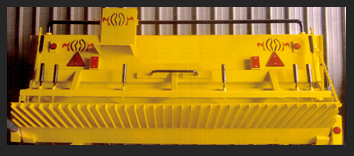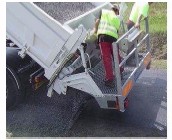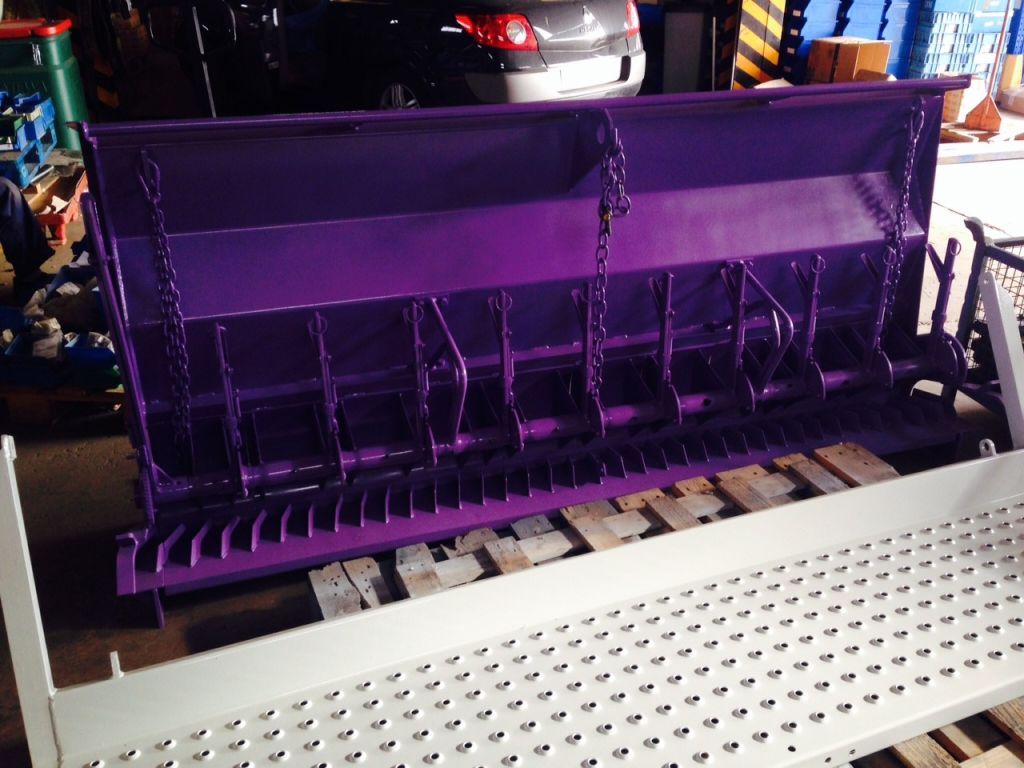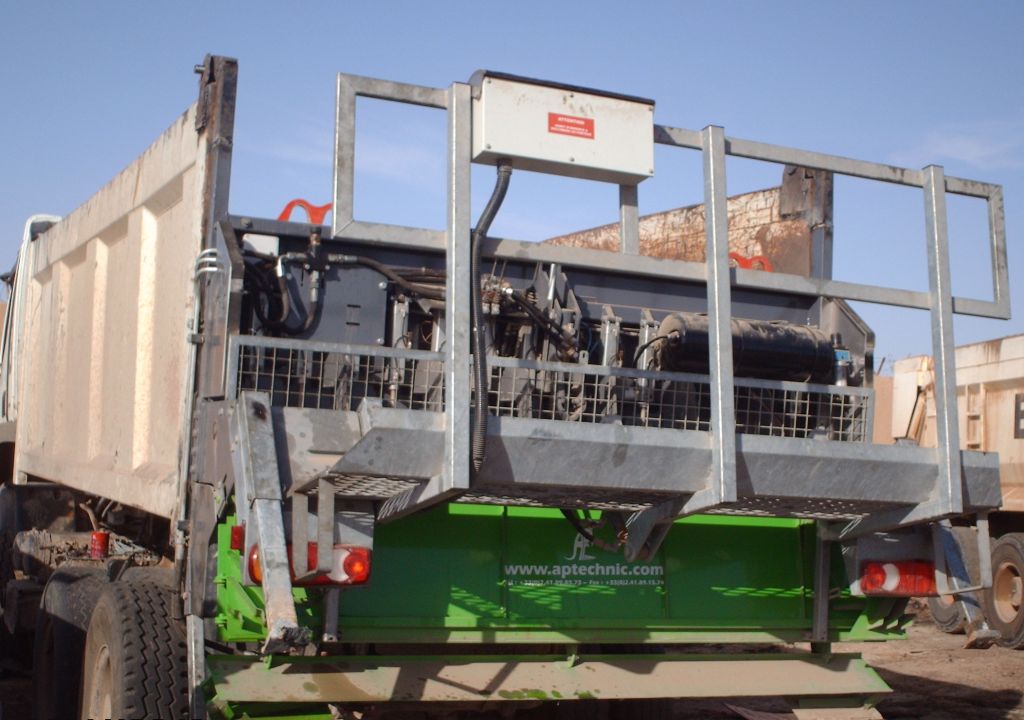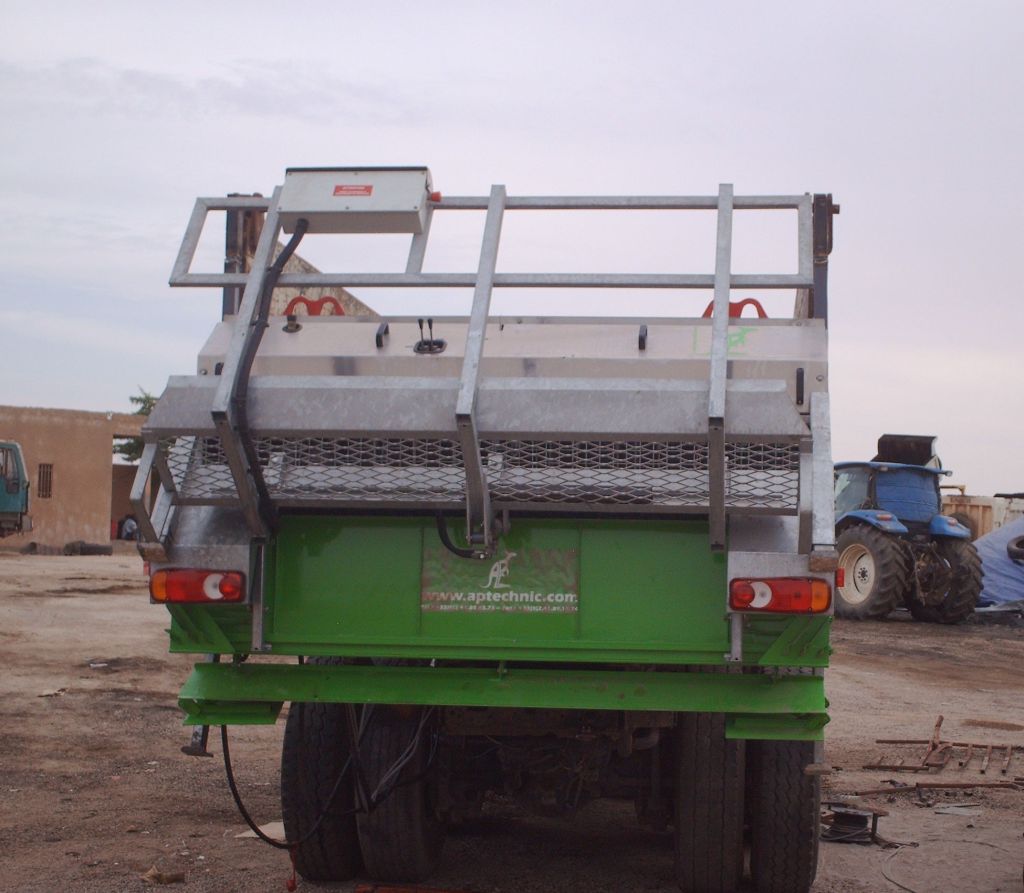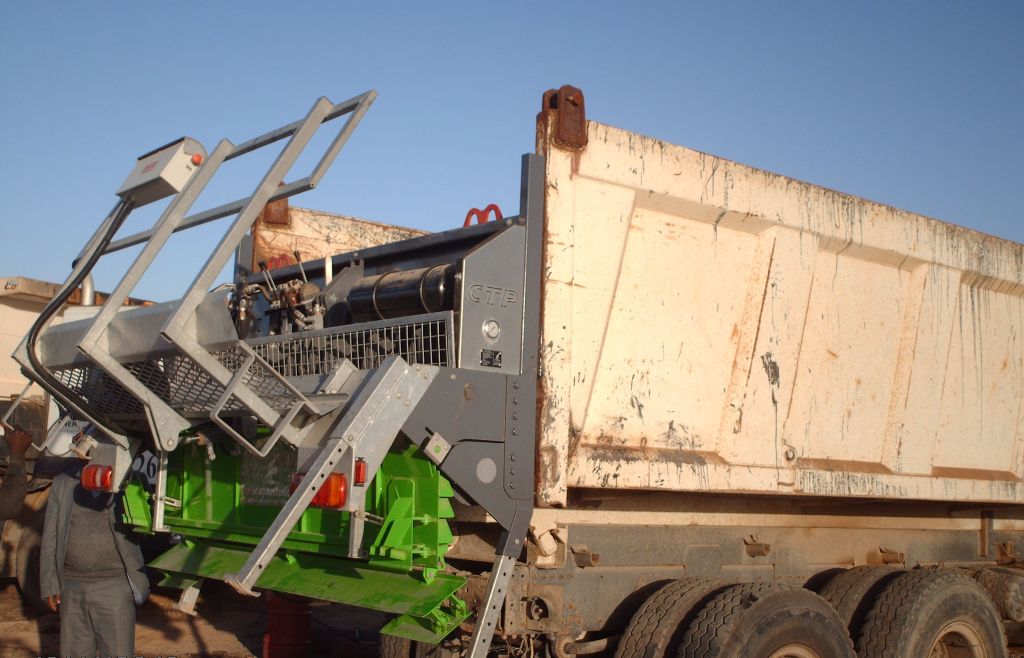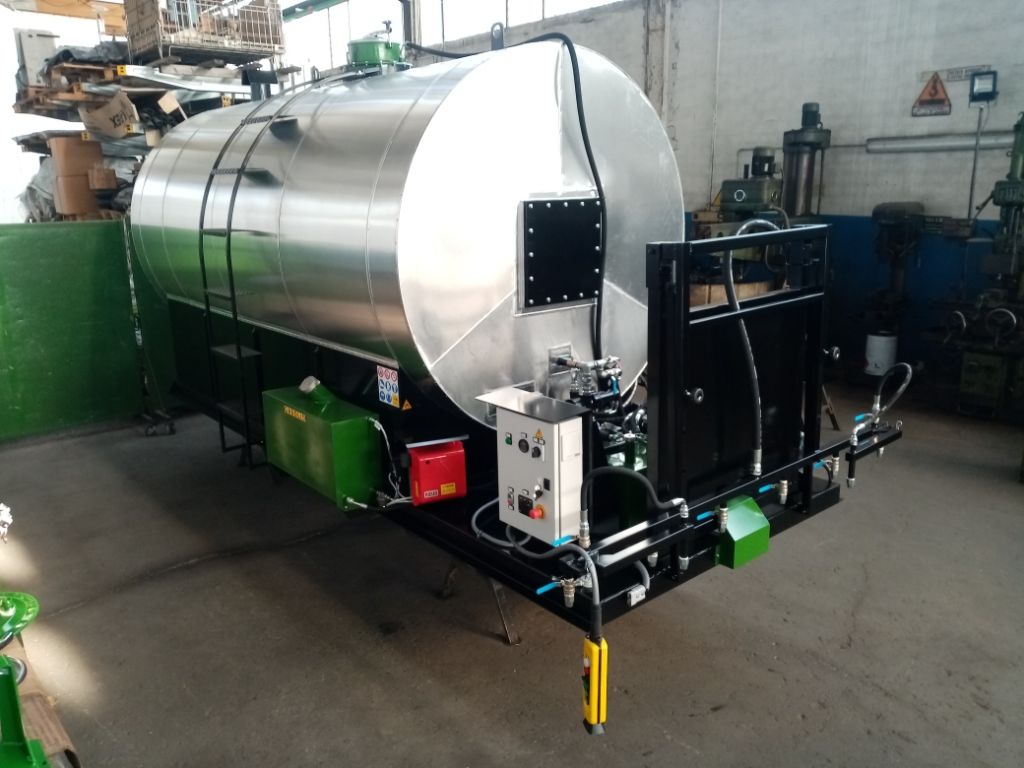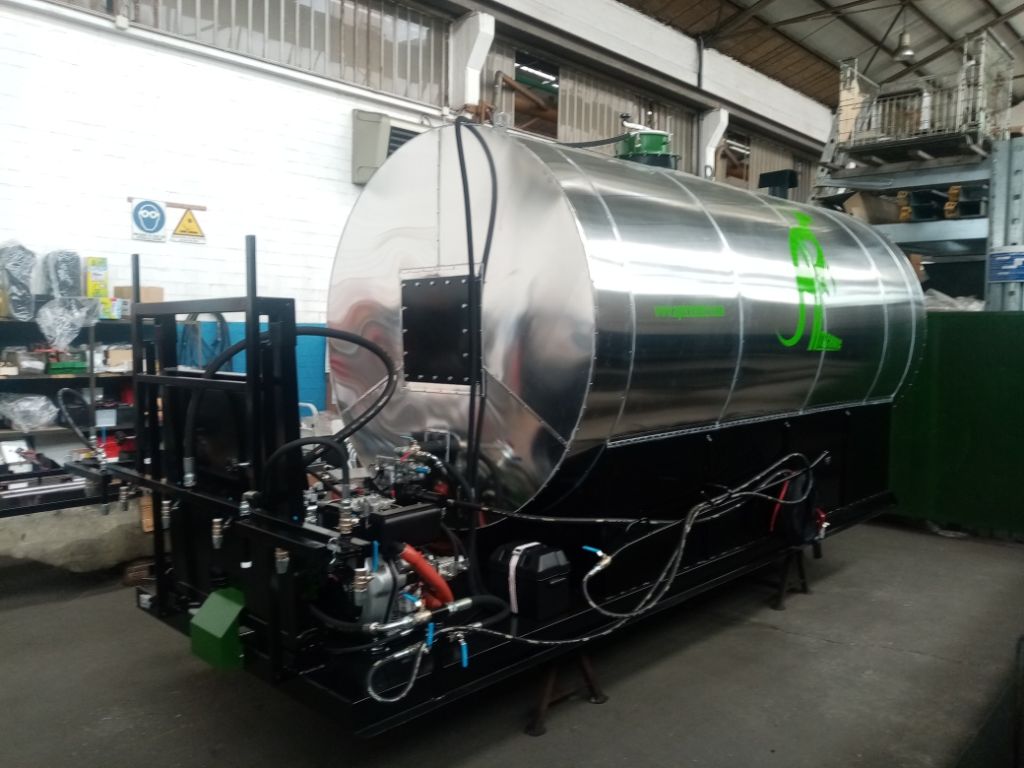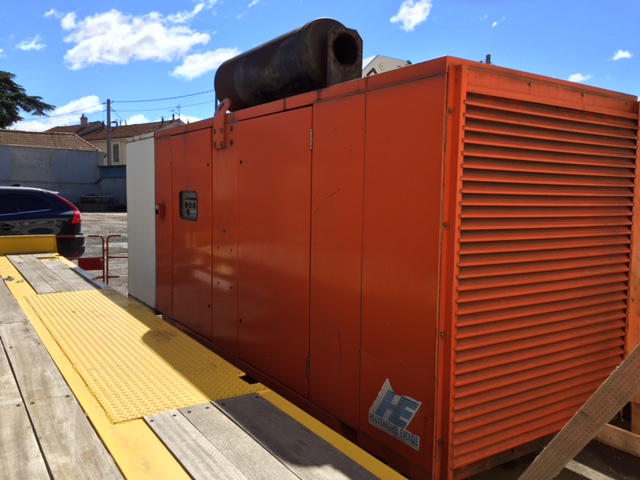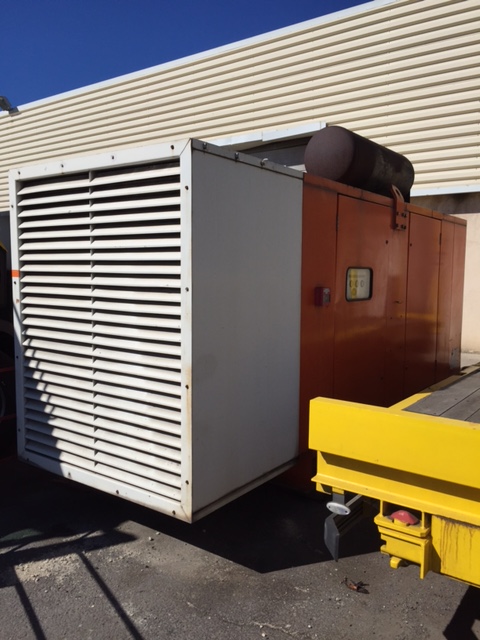AP Technic offers a variety of public works equipment for road maintenance and earthmoving.
Don't hesitate to contact us for chip spreaders, spreaders, generators, loaders, excavators, graders, and other machinery.
Here are a few examples:
Chip Spreader
Two versions available: manual or hydraulic, compatible with all brands of dump trucks with a gross vehicle weight greater than 19 tons.
Manual Chip Spreader
- Ease of use: Manual systems are generally simpler to use and maintain, with fewer components likely to fail.
- Reduced cost: The absence of complex hydraulic systems makes this equipment less expensive to purchase and maintain.
- Direct control: The operator has immediate control over the opening and closing of the hatches, which may be sufficient for small-scale projects or occasional needs.
Hydraulic Chip Spreader
- Precision and Consistency: The hydraulic drive allows for consistent longitudinal spreading, regardless of the bucket's inclination, ensuring even distribution of chippings.
- Fine Adjustment and Automation: The gates and flow rate can be hydraulically controlled, providing precise and consistent dosage, even depending on truck speed or site conditions.
- Versatility and Safety: Hydraulic controls allow for remote adjustments, protect the user, and allow for the integration of automated systems to quickly adapt the machine to site needs.
- Adaptability: Some hydraulic models offer individual gate adjustment and the ability to vary the speed of the distributor roller, thus optimizing yield and spreading quality.
- Less Physical Effort: Hydraulic systems reduce operator strain by automating adjustment and distribution tasks.
SPREADER
AP TECHNIC can supply you with spreaders with capacities of 1,000 liters, 6,000 liters, 9,000 liters, or even 14,000 liters to be installed in the truck bed.
The rear booms are operated manually or by hydraulic cylinders.
Productivity and Time Savings
- Spreaders mounted on a truck bed allow for fast and efficient spreading of materials, significantly reducing work time compared to manual application or less mechanized methods.
Reduced labor costs
- A single operator can manage the spreading process, limiting personnel requirements and reducing costs related to labor and ancillary equipment (shovels, wheelbarrows, etc.).
Spreading precision
- This equipment offers precise control over the quantity and location of materials, thanks to control systems (sometimes remote) that allow the width, depth, and rate of spreading to be adjusted according to the needs of the site.
Versatility and adaptability
- Skip-mounted spreaders can be used for different types of materials and applications (gravel, emulsion, sand, salt, etc.), making them suitable for many sites and seasonal uses.
Increased safety
- Mechanized spreading limits the manual handling of heavy or bulky materials, thus reducing the risk of injury for operators.
Truck bed-mounted spreaders provide efficiency, economy, precision, and safety for spreading work on roads or construction sites, while offering great versatility.
GENERATOR SET
We offer new or used generator sets to complement our plants or other areas of activity.
Main role
- The generator set is used to provide the electricity required to operate the asphalt mixing plant, particularly on mobile models or on sites without a power grid connection.
- It powers all equipment: conveyors, drying drum, mixer, dosing systems, bitumen pumps, and control and safety devices via the electrical cabinet.
Power and Sizing
- The power of generator sets varies depending on the size of the plant, with common examples ranging from 250 kW to over 1,100 kVA for large-capacity installations.
- For asphalt plant production, the electrical grid is a solution; however, if the grid is unstable, a primary generator set will be required, followed by a smaller secondary generator set to maintain the bitumen temperature in the tanks during periods of inactivity.
Advantages
- Energy autonomy: Allows the plant to operate independently of the grid, which is essential for mobile or isolated construction sites.
- Mobility: Facilitates the rapid relocation and installation of the plant at different sites, without constraints related to access to electricity.
- Safety and continuity: Guarantees production continuity even in the event of a grid outage or on temporary sites, thus avoiding construction site interruptions.
